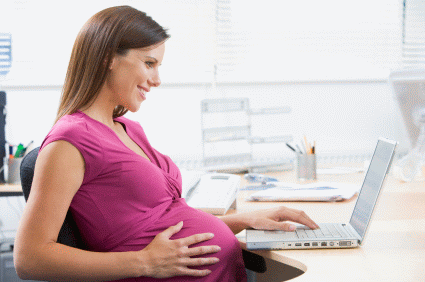Pregnant women and parents returning to work will receive greater protection from redundancy under new plans.
The government proposes extending legal protection against redundancy for pregnant women for six months after they return to work.
The protections could also be extended to others, including men, who return from adoption or shared parental leave.
Theresa May said: “It’s unacceptable that too many parents still encounter difficulties when returning to work.”
Business Department research found that one in nine women had been fired or made redundant when they return to work after having a child, or were treated so badly they felt forced out of their job.
The study also suggested that 54,000 women may lose their jobs due to pregnancy or maternity every year.
Business Minister Kelly Tolhurst said: “Pregnancy and maternity discrimination is illegal, but some new mothers still find unacceptable attitudes on their return to work which effectively forces them out of their jobs.”
Consultation
The government has launched a 10-week consultation on the proposals, which has been welcomed by consumer groups.
Justine Roberts, Mumsnet founder, said: “In a 2018 survey 96% of women we surveyed said having children affected mothers’ careers for the worse.
“It’s a multifaceted problem requiring a change in attitude and culture, as well as legislation, but stronger legal protection is a very welcome first step.”
Jane van Zyl, chief executive of work-life balance charity Working Families, said: “We hear from women struggling with pregnancy and maternity discrimination every single day on our helpline.
“The proposals should go a long way toward reducing the shocking number of women who lose their jobs due to pregnancy and maternity discrimination.”
Theresa May added: “People in this country already benefit from some of the most rigorous workplace standards in the world, including parental leave and pay entitlements, but we are determined to do even more as we leave the EU.”
Justice
Campaigner Joeli Brearley, founder of Pregnant Then Screwed, said the extensions won’t help pregnant women being targeted at work.
She pointed out that Equality and Human Rights Commission research published in 2016 showed that around one in 20 mothers were actually made redundant at some point during their pregnancy, either while pregnant, during maternity leave or after returning to work.
“More mothers are made redundant when the enhanced protections already exist than when they don’t, proving that the enhanced protections which are already in place are not working, so what is the point of extending them?” she said.
“The problem isn’t the law – the law is very clear, it is illegal to make someone redundant due to pregnancy or maternity,” she said.
Ms Brearley said there are various problems that need to be addressed, such as access to justice.
She also cited “prohibitively expensive childcare” plus the fact that a lack of flexible working “makes it almost impossible for parents to manage their responsibilities”.
“Until we solve these issues, and create a society where women can be both bread winner and care giver, we will never reduce discrimination in the workplace,” she said.
Charlie Rosier, Co-founder of Cuckooz Nest, commented: “It’s great to see the Government taking this issue seriously, however, given the quite scandalous nature of this matter, we would call on them to consider extending this term to a full 12-months and providing this protection for fathers as well.
It simply isn’t good enough that the careers of so many successful, professional women are effectively being discarded for no other reason than choosing to have a baby.
We hope that this is the first step in a comprehensive shake-up of the maternity leave landscape in the UK and that more emphasis will be put on big businesses and the Government to work together to combat this negative trend surrounding maternity leave.
We’ve previously called for free childcare for parents of children under five as the benefit of retaining talent during and after maternity leave far outweighs the cost of replacing it. Hopefully, more and more employers will start to wake up to this fact and offer greater support to both parents when returning to the workplace.”


